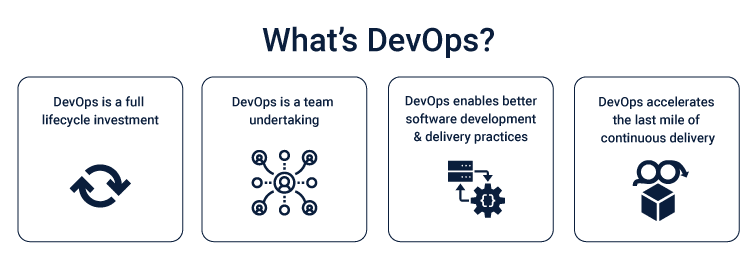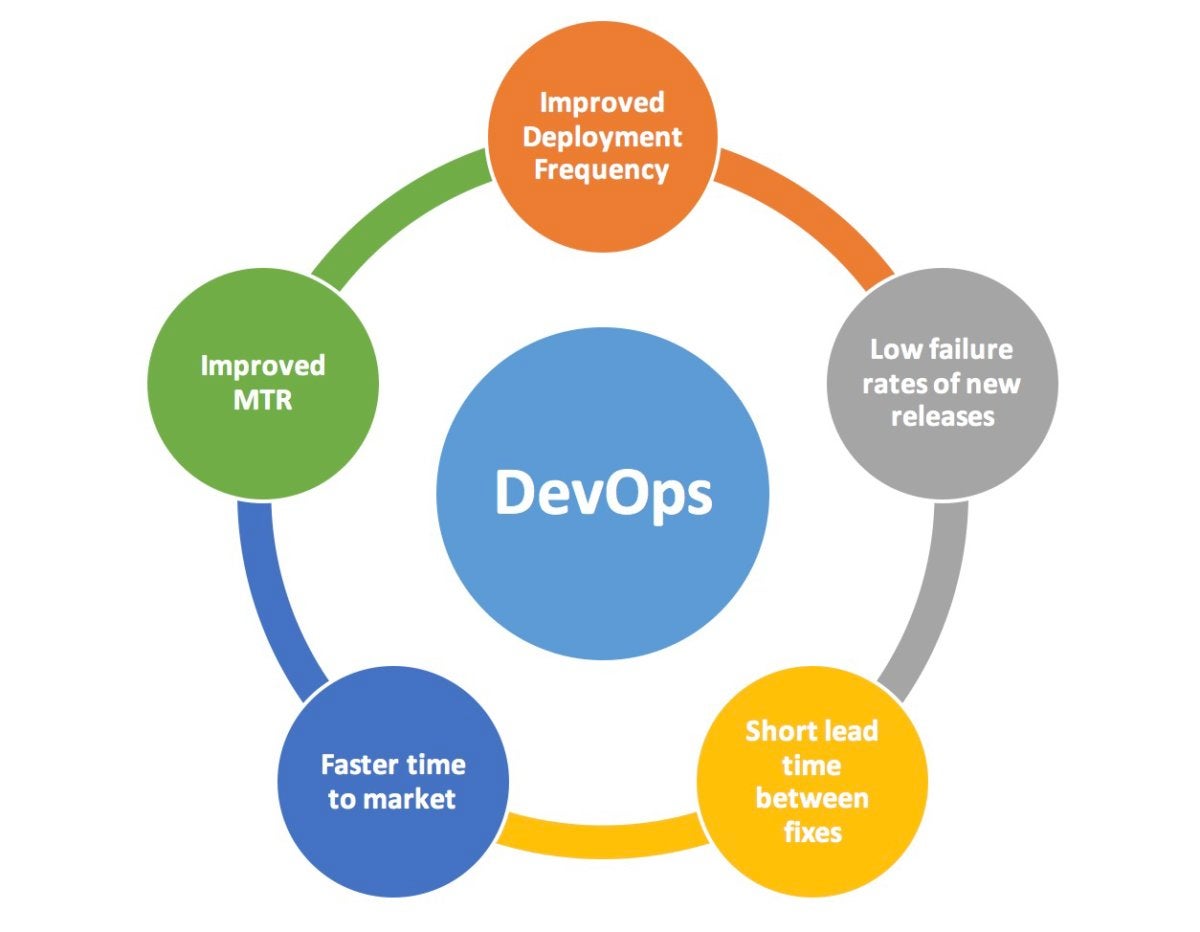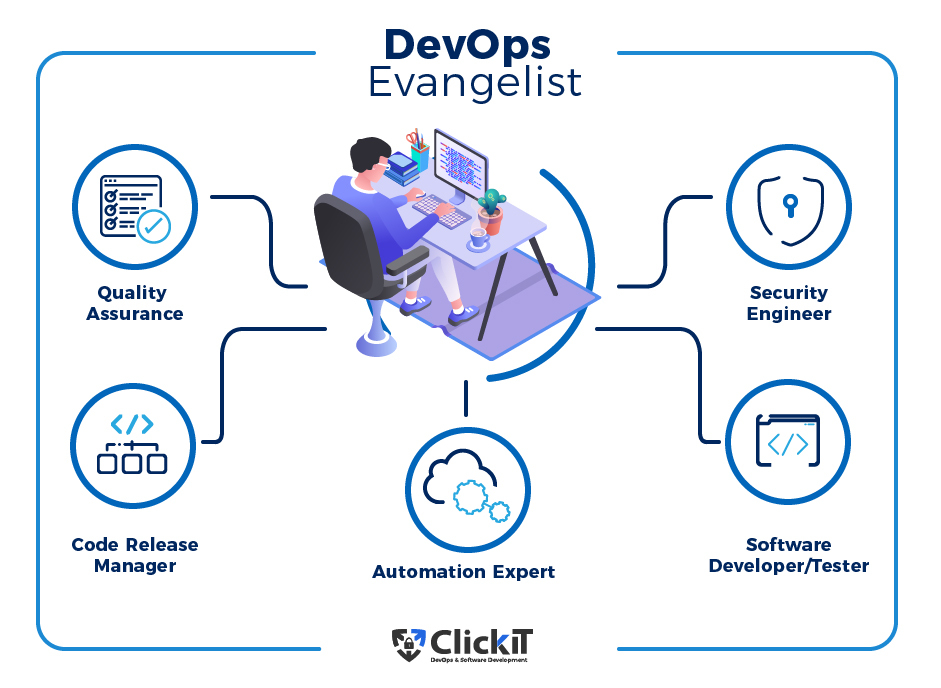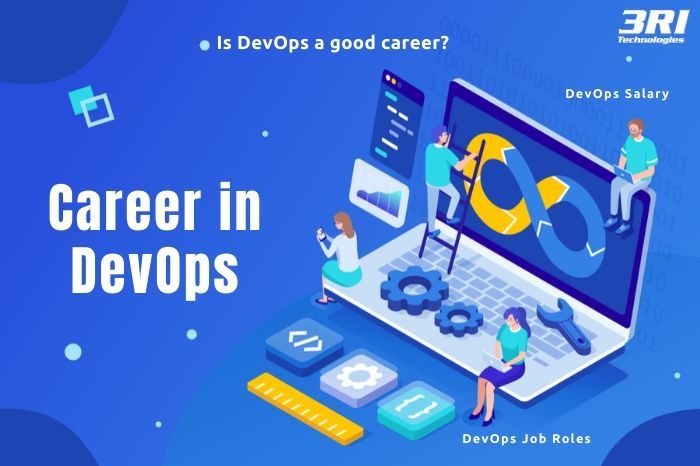What is a DevOps Position?
A DevOps position refers to a role that focuses on bridging the gap between development and operations teams in modern software development. By combining cultural philosophies, practices, and tools, DevOps aims to shorten the development life cycle and provide continuous delivery with high software quality. A professional in a DevOps position typically has a strong background in software development, IT operations, or both, and is responsible for ensuring seamless collaboration and communication between these two teams.
Key Responsibilities of a DevOps Professional
A DevOps professional plays a crucial role in modern software development by ensuring seamless collaboration and communication between development and operations teams. The main responsibilities of a DevOps professional include:
- Collaboration: Fostering a collaborative environment where development and operations teams work together towards common goals.
- Automation: Implementing automation tools and processes to streamline software development, testing, and deployment.
- Continuous Improvement: Emphasizing continuous improvement in software development practices, processes, and tools.
- Infrastructure Management: Managing and maintaining the IT infrastructure, including servers, storage, and networking resources.
- Security: Ensuring the security and compliance of software applications and infrastructure.
- Monitoring and Analytics: Monitoring system performance, identifying issues, and providing actionable insights for improvement.
- Testing and Deployment: Overseeing testing and deployment processes to ensure smooth and efficient software delivery.
By balancing these responsibilities, a DevOps professional helps organizations achieve their business objectives while delivering high-quality software products and services.
Different Types of DevOps Roles
Various DevOps positions exist, each requiring unique skills and responsibilities. Here are some common DevOps roles:
DevOps Engineer
A DevOps engineer is responsible for managing the software development lifecycle, including coding, scripting, building, testing, and deploying applications. They need to have a solid understanding of automation tools, cloud computing, and infrastructure management.
DevOps Consultant
A DevOps consultant helps organizations adopt DevOps practices and methodologies. They assess the current development and operations processes, identify areas for improvement, and provide recommendations for implementing DevOps principles and tools.
DevOps Manager
A DevOps manager oversees the DevOps team and ensures that the DevOps strategy aligns with the organization’s business objectives. They are responsible for managing resources, setting priorities, and monitoring team performance to ensure successful software delivery.
DevSecOps Engineer
A DevSecOps engineer combines DevOps and security practices to ensure that software applications are secure and compliant. They are responsible for integrating security into the software development lifecycle, including threat modeling, vulnerability assessments, and security testing.
Site Reliability Engineer (SRE)
An SRE is responsible for ensuring the reliability, availability, and performance of software applications and infrastructure. They use DevOps practices and tools to automate processes, monitor systems, and implement improvements to enhance the overall user experience.
How to Become a DevOps Professional
Becoming a DevOps professional requires a combination of education, experience, and skill development. Here are the steps to become a DevOps professional:
Step 1: Obtain Relevant Education
A bachelor’s degree in computer science, information technology, or a related field is a good starting point. Some organizations may require a master’s degree or relevant certifications in DevOps, cloud computing, or automation tools.
Step 2: Gain Experience
Look for opportunities to gain experience in software development, IT operations, or both. You can start as a developer, system administrator, or operations engineer and gradually move towards DevOps roles.
Step 3: Build a Strong Skill Set
Develop a strong skill set in coding, scripting, automation tools, and cloud computing. Familiarize yourself with popular DevOps tools and technologies, such as Jenkins, Docker, Kubernetes, and Ansible.
Step 4: Network and Learn
Join DevOps communities, attend conferences, and participate in online forums to learn from experts and network with other professionals. Stay up-to-date with the latest trends and best practices in DevOps.
Step 5: Pursue Certifications
Earn DevOps certifications from reputable organizations, such as AWS, Microsoft, or Red Hat. These certifications can help you stand out in the job market and demonstrate your expertise in DevOps practices and tools.
Top Skills Required for DevOps Positions
DevOps positions require a unique set of skills that enable professionals to collaborate, automate, and continuously improve software development and operations processes. Here are the essential skills for DevOps positions:
Coding and Scripting
DevOps professionals should have a strong background in coding and scripting languages, such as Python, Ruby, Java, or JavaScript. They should be able to write code that automates processes, integrates with APIs, and performs various functions in the software development lifecycle.
Automation Tools
DevOps professionals should be familiar with automation tools, such as Jenkins, Travis CI, or CircleCI. These tools help automate the software development lifecycle, including building, testing, and deploying applications.
Cloud Computing
DevOps professionals should have experience with cloud computing platforms, such as Amazon Web Services (AWS), Microsoft Azure, or Google Cloud Platform (GCP). They should be able to manage infrastructure, deploy applications, and optimize cloud resources using DevOps practices.
Containerization and Virtualization
DevOps professionals should have experience with containerization and virtualization technologies, such as Docker, Kubernetes, or VMware. These technologies enable the creation of portable, scalable, and efficient application environments.
Infrastructure as Code (IaC)
DevOps professionals should be familiar with IaC tools, such as Terraform, Ansible, or Chef. IaC enables the management of infrastructure using code, which promotes automation, consistency, and scalability.
Security and Compliance
DevOps professionals should have a solid understanding of security and compliance principles, such as threat modeling, vulnerability assessments, and secure coding practices. They should be able to integrate security into the software development lifecycle and ensure compliance with industry standards and regulations.
Popular DevOps Tools and Technologies
DevOps positions require proficiency in various tools and technologies that enable automation, collaboration, and continuous improvement. Here are some popular DevOps tools and technologies:
Jenkins
Jenkins is an open-source automation server that enables continuous integration and continuous delivery (CI/CD) of applications. It supports various plugins and integrations, making it a popular choice for DevOps professionals.
Docker
Docker is a containerization platform that enables the creation, deployment, and management of applications in containers. It provides a lightweight, portable, and consistent environment for applications, making it a popular choice for DevOps professionals.
Kubernetes
Kubernetes is an open-source platform for automating the deployment, scaling, and management of containerized applications. It provides a flexible, scalable, and resilient environment for applications, making it a popular choice for DevOps professionals.
Ansible
Ansible is an open-source automation tool that enables the management and configuration of infrastructure and applications. It provides a simple, agentless, and powerful approach to automation, making it a popular choice for DevOps professionals.
GitHub
GitHub is a web-based platform for version control and collaboration that enables developers to manage code, track issues, and collaborate on projects. It provides a social and community-driven approach to software development, making it a popular choice for DevOps professionals.
Terraform
Terraform is an open-source infrastructure as code (IaC) tool that enables the management and provisioning of infrastructure resources. It provides a declarative and flexible approach to infrastructure management, making it a popular choice for DevOps professionals.
How to Excel in a DevOps Position
Excelling in a DevOps position requires a combination of technical skills, collaboration, and continuous learning. Here are some tips and strategies for excelling in a DevOps position:
Stay Up-to-Date with the Latest Trends
DevOps is a rapidly evolving field, and staying up-to-date with the latest trends and best practices is crucial. Attend conferences, read blogs, and participate in online communities to stay informed about the latest developments in DevOps.
Collaborate Effectively
DevOps is all about collaboration and communication between development and operations teams. Develop strong relationships with your colleagues, listen actively, and communicate clearly to ensure successful collaboration.
Continuously Learn
Continuous learning is essential for success in a DevOps position. Identify areas for improvement, set learning goals, and seek out opportunities for growth. Consider obtaining certifications, attending training courses, or pursuing higher education to build your skill set.
Embrace Automation
Automation is a key aspect of DevOps, and embracing automation can help you excel in your position. Identify manual processes that can be automated, and learn how to use automation tools and technologies to streamline your workflows.
Focus on Continuous Improvement
Continuous improvement is a core principle of DevOps. Identify areas for improvement, set goals, and measure progress over time. Use data and analytics to inform your decisions, and seek out feedback from your colleagues to ensure that you are continuously improving.
Develop Strong Problem-Solving Skills
DevOps professionals are often called upon to solve complex problems. Develop strong problem-solving skills by breaking down complex problems into smaller components, identifying root causes, and developing creative solutions.
Career Opportunities and Growth in DevOps
DevOps positions are in high demand and offer excellent career opportunities and growth potential. Here are some reasons why DevOps is a great career path:
High Demand for DevOps Professionals
According to a report by Grand View Research, the global DevOps market size was valued at USD 6.73 billion in 2020 and is expected to grow at a compound annual growth rate (CAGR) of 19.1% from 2021 to 2







